,
Busoga Region – UGANDA
This project is made possible through the partnership of WATER CHARITY and the OKOA Hero’s Child Ministries.
Location
Iganga District, Uganda
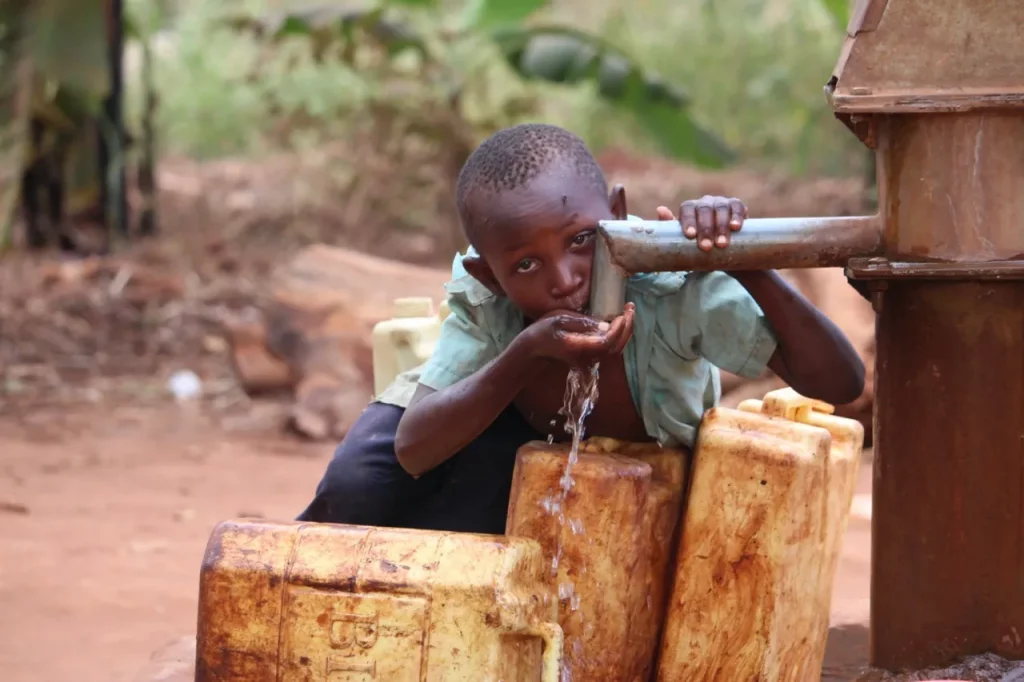
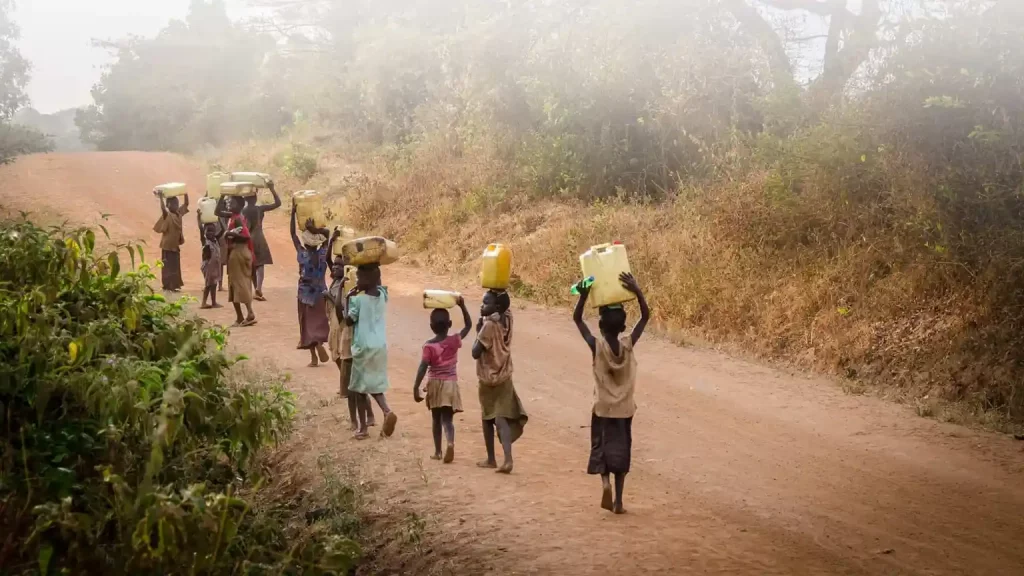
Community Description
Iganga District in Uganda is home to a population of about 402,000 people according to City Population. Most of the people living in it are peasants who have limited access to clean water and poor sanitation facilities. Poverty still remains the significant and very critical situation for the residents. 33% of the population’s access to clean water are in the center of the district, while the rest about 67% of the population must rely on unclean sources like swamp and wells.
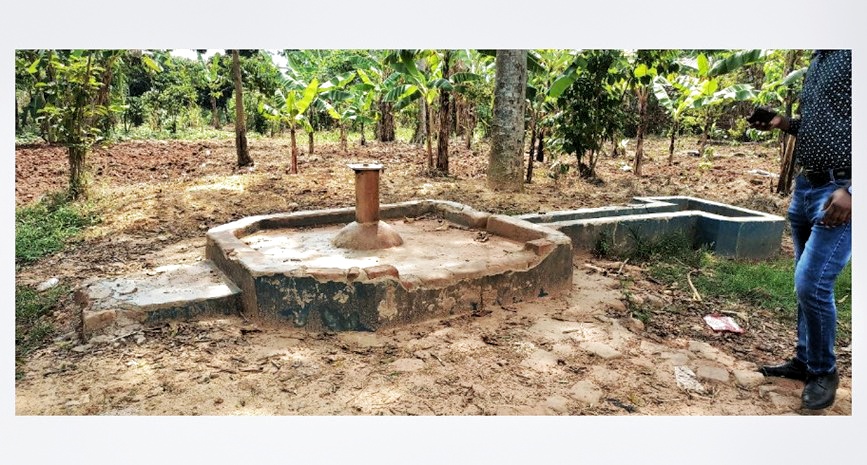
In rural Uganda today, 67% of people have limited to zero access to a safe drinking water source. 83% of people have limited to zero access to a safe toilet facility. 94% of people have limited to zero access to a handwashing facility. The conditions in rural areas of Iganga District have led to a rise in illnesses like diarrhea and bilharzia due to poor sanitation and hygiene practices. The local government and other humanitarian organizations have tried to provide aid but their efforts have been unsuccessful due to corruption and mismanagement whereby those tasked to deliver services end up setting up low-standard hand-pump boreholes which dry out during the dry season. Meanwhile, the suffering is increased. Recently, an 11-year-old girl drowned in the water source her family is forced to use. It is over 5 miles round trip… with the return trip carrying full Jerrycans.
Problem Addressed
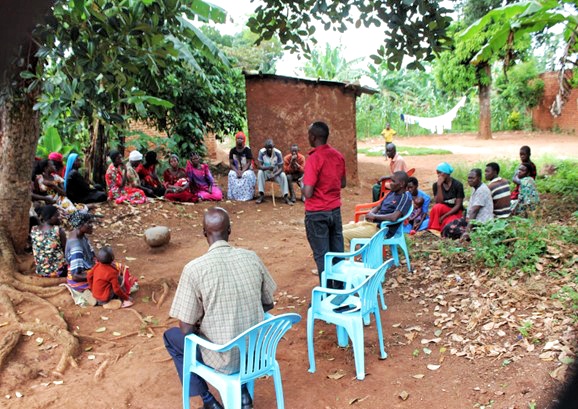
A lack of access to clean water in the rural areas, has not only led to the spread of waterborne diseases, but it has also greatly contributed to school dropouts for example lack of enough water at schools and underdevelopment of the area. The poor families also struggle with early pregnancies since girl children are forced to scramble for water from open wells, where they are either raped or even enticed in sexual conduct. Another major problem is the issue of sanitation, many families in the villages of Iganga district it has been observed that they do have very poor sanitation, example lack of water to wash hands after latrine use, lack of clean water to keep personal hygiene mostly for the girl child, lack of enough water for domestic use, etc. This has overwhelmed the families from the village to seek sources of clean water, and also to struggle to prevent waterborne diseases such as diarrhea, bilharzia, and cholera.
The main target group are the most underprivileged or vulnerable in the community, for example, children and youths, school children, women, the elderly, orphans and the poor rural homes in the 25 villages of the Iganga district. Perhaps a total number of about 15,000 mothers and children (More especially the girl child) shall directly benefit from the project with emphasis on the girl-child. The age group of 4-20 years, with an interest in reducing the long distances, traveled while in search of clean water for domestic use.
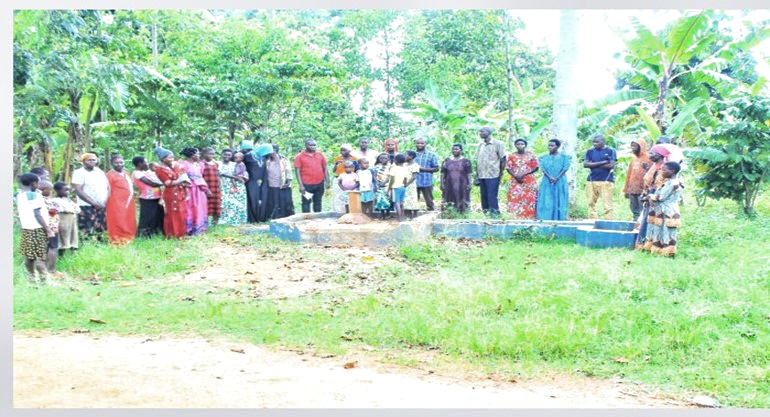
Challenges
Being a village project, there are quite a lot of challenges that the organization will meet: i.e.;
● Lack of resources by the community to contribute towards the village clean water project. Families do lack water storage utensils due to poverty.
● Poor sanitation in the community. Remoteness and a poor road network.
● Land for borehole construction
Project Description
The project is aimed at the construction of 55 Hand pump boreholes in 25 most vulnerable villages of Iganga district with the essence that at least every village has 2 hand-pump boreholes in place. Out of the 55 boreholes, 6 Hand-pump boreholes are already completed in the first phase of this program.
The project will cover 25 villages from 5 sub-counties with a population of about 20,588 according as shown in the table below:

A community water source is very central to all and especially to women in the fight against poverty and equality. However, access to clean water in rural areas of Iganga district is low. And this is so, because of several reasons. The first cause is poverty itself. Reversing this situation through charity is of paramount importance for empowering the poor, children and their families.
Water Charity has planned to support vulnerable and poor families socially by providing a community clean water source. Our main intention is to empower families, communities, and vulnerable children and youths through this project with a good standard of living ensuring an improvement in sanitation and control of disease outbreaks.
Project Administration
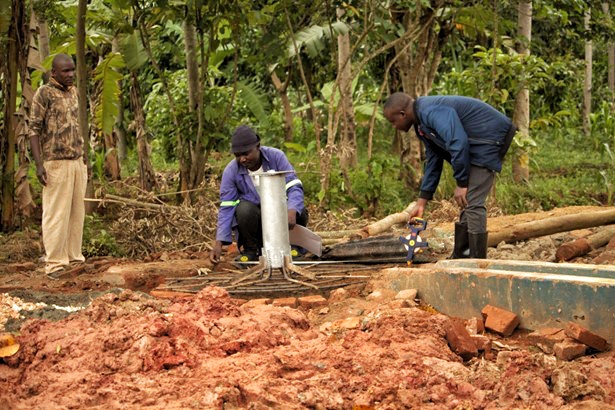
The village clean water project will be implemented by Okoa Hero’s Child Ministries as partners of Water Charity. With the availability of resources, the project shall be fully operational within 2 months and ongoing depending on the agreed donor time framework. The clean water source will be a man-dug well that will be fitted with a hand pump and converted into a borehole, hence turning the water source into a clean water source. Our target is that each of the 25 villages must have a fully functional 2 boreholes. The project will be carried out with direct support from the community, for example, the storage of equipment and the mobilization of community site activities. Every community member shall be entitled to contribute $0.27 per month in order to facilitate repairs, borehole staffing, and other activities such as sanitation of the water source and wastewater management.
Overall objectives
The overall objective of this project is to provide clean water to the 25 vulnerable villages in Iganga district. The specific objectives of the project are to improve sanitation;
● To increase the enrolment of children in school.
● To increase access to clean water for poor families.
● To change the standards of living of households and also improve household health. ● To improve community access to clean water and sanitation
Specific Objectives
●To enable poor families to access clean water.
● To provide the community with a clean water source.
● To allow children access clean water.
● To change the standards of living of the communities of people in the 25 villages.
● To promote good sanitation.
● To reduce the distance traveled by community members while in search of clean water.
Project Activities
This project includes different activities. These are selecting community meetings on advocacy for clean water, Construction and digging of the borehole. Provision of support to educate locals about sanitation, Constructing a 5000-liter tank water reservoir and Sensitizing children about water use mostly girls. Fencing of the borehole and planning for wastewater drainage and empowering poor families about means of storing water for domestic use.
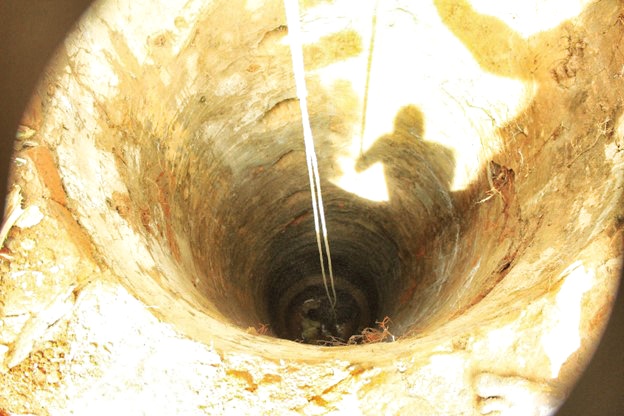
● IDENTIFYING POOR FAMILIES IN BUKYAYE VILLAGE
The first activity of the project is the selection of beneficiaries. They will be selected from communities within Bukyaye village. A team from each community will be mobilized to make an objective selection of the poorest families in Bukyaye village. There shall be criteria to identify the most vulnerable from each of the communities in the 25 villages and the beneficiaries will be the most needy village of the community.
● DATA COLLECTION PER HOUSEHOLD.
The selected poor households will be supported through a data collection survey. During the data collection survey, we will find out which provisions need to be fulfilled for example water storage equipment, plate stale, clothing and medical expenses to enable us to design the best for them in our upcoming projects.
● PROVIDE SANITATION SUPPORT TO BENEFICIARIES.
Here the beneficiaries of this project, the poor households shall receive sanitation support including safe drinking water and skills of water storage and basic household sanitation.
● COMMUNITY MEETING (CONDUCTING MEETINGS ON WHERE TO PLACE THE BOREHOLE).
The community is the nearest body to the poor and vulnerable families and children and so they bear the responsibility to support and advocate for their collective well-being. To this end, therefore, there is a plan to conduct community representative meetings on where the man-dug well will be constructed and how to support the clean water project and care for the borehole at the community level. This will include what amount to be contributed, when to shut the water source and when to open it to the public.
● COMMUNITY MEETINGS ON ANNUAL BASIS ON HOW TO MAINTAIN THE BOREHOLE.
In order to support the village clean water project, sustainable provisions per activity have to be put in place so as to maintain the project and its objectives. To sustainably support the community, they will have to be empowered economically. To maintain the water source for different purposes like domestic use, agriculture and also animal grazing.
Monitoring and Maintenance
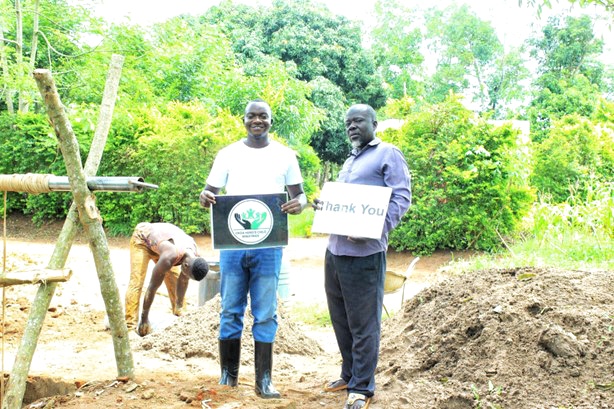
Monitoring will be carried out on a regular basis throughout the project. The fieldwork desk has the responsibility of providing technical support, monitoring, and evaluation. The community shall be involved from the planning phase to hand over of the project.
The community shall be involved in the selection of poor families, monitoring and evaluation of the project. The funding agency shall also monitor, evaluate and receive the financial and physical accomplishment report.
The project will be subject to evaluation on a quarterly basis. However, day-to-day monitoring of its progress will be carried out by the Project Director and the Field officer and the beneficiary community members to ensure the attainment of the project goals. Quarterly reports are to be made to confirm the proper and effective use of resources received.
EXPECTED OUTPUT
The long-term output:
● The social welfare status of poor families improved.
Short term inputs
● Poor families have access to clean water on a daily basis.
● Improvement in sanitation and nutrition of poor families. Easy access to clean drinking water by children.
● Provision of water for domestic use. Presence of water for agricultural use.
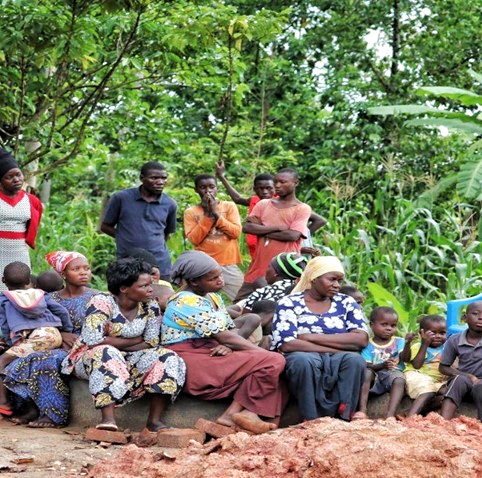
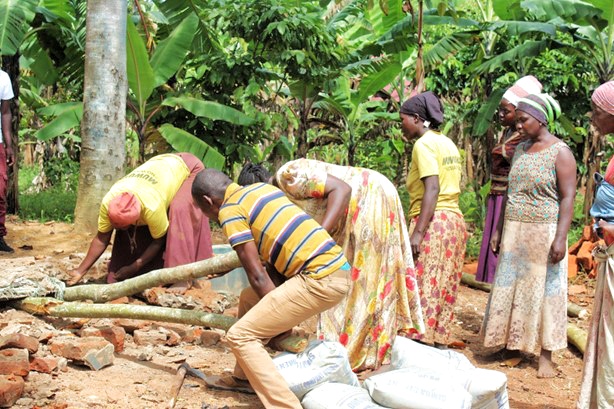
Project Funding
The funds for this program have been advanced by Water Charity. Each borewell averages out to about $2k and we intend to raise $110k for this program, your donation using this Donate button will ensure that we have funds available to accomplish this project. Kindly donate using the button below:

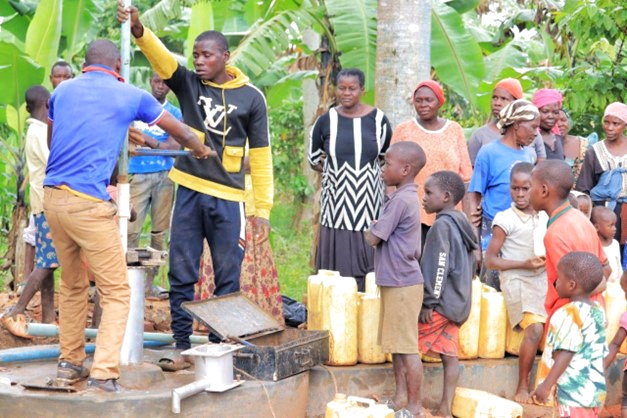
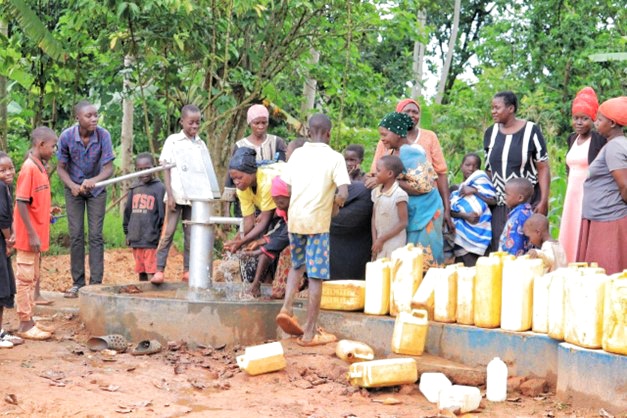
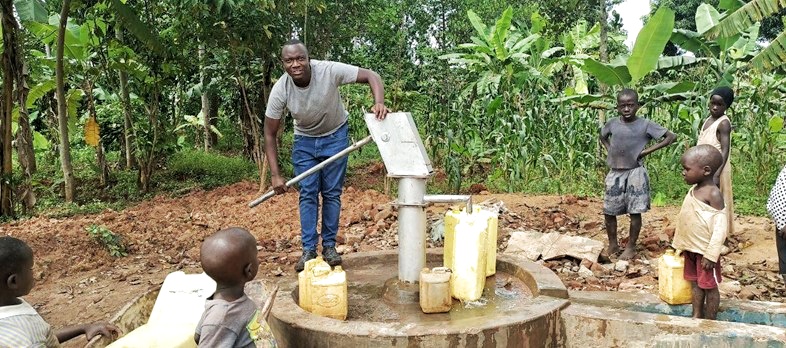
Tragic Loss of Life
A tragedy occurred at one of the villages supported by the Busoga Region Borehole Program project. On Friday, we received the devastating news that an 11-year-old girl named Nabirye Shaliwa had drowned in a nearby water well and lost her life. Our team was on site until the body was retrieved.
This is a heartbreaking reminder of why our mission to bring safe and clean water to communities in need is so important. It also underscores the urgency of our work and why we must continue to strive for success in this project.
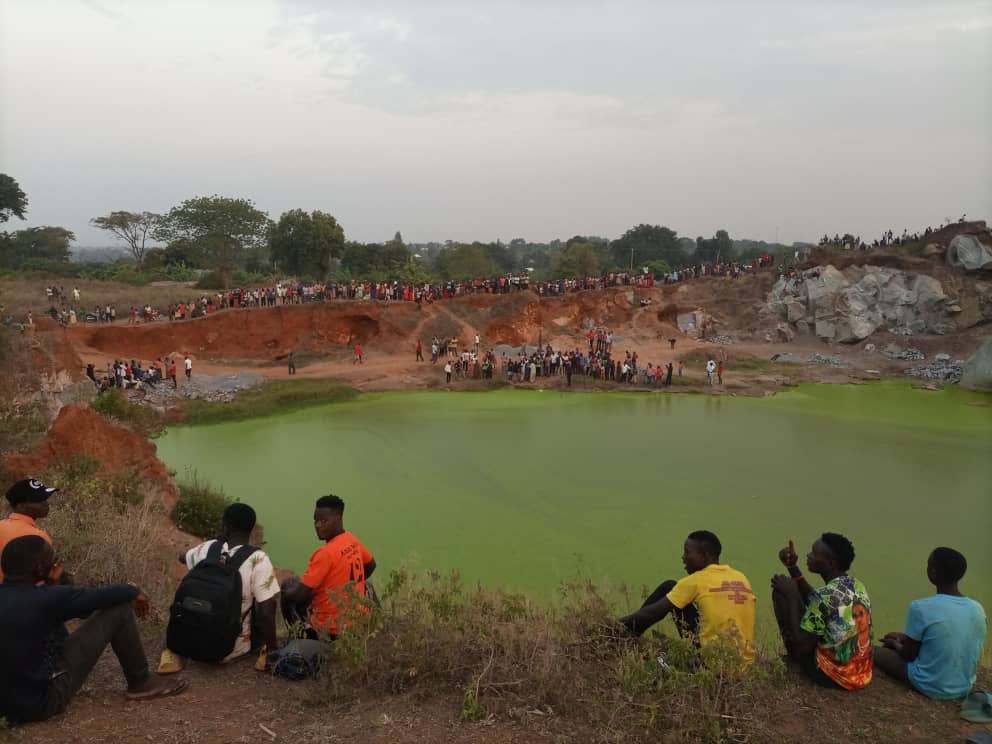
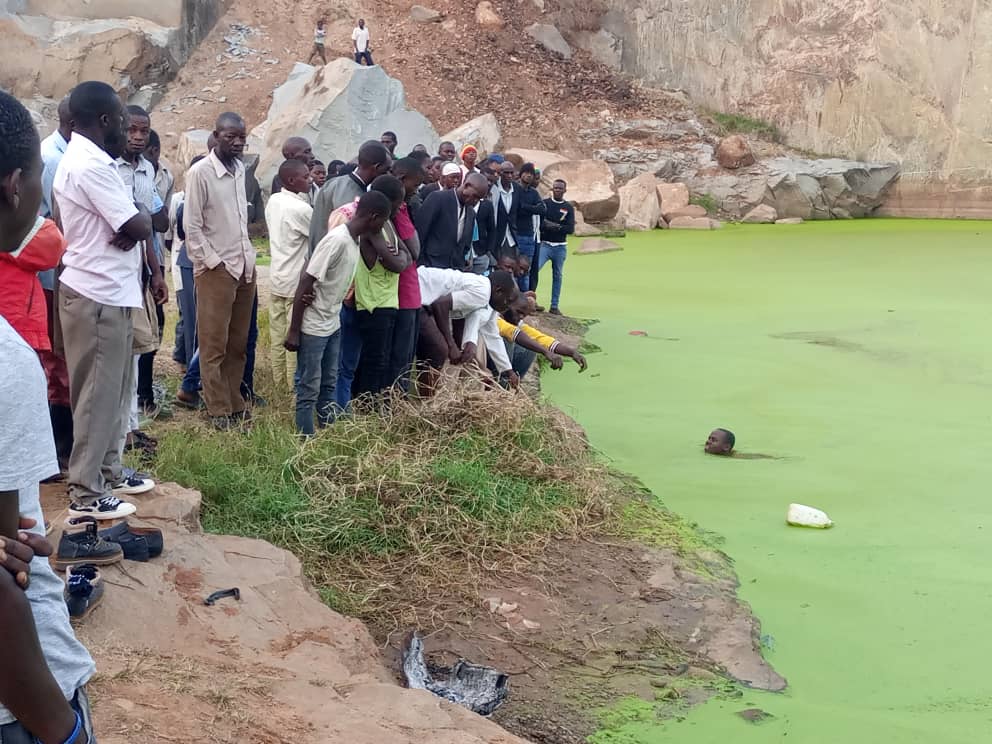
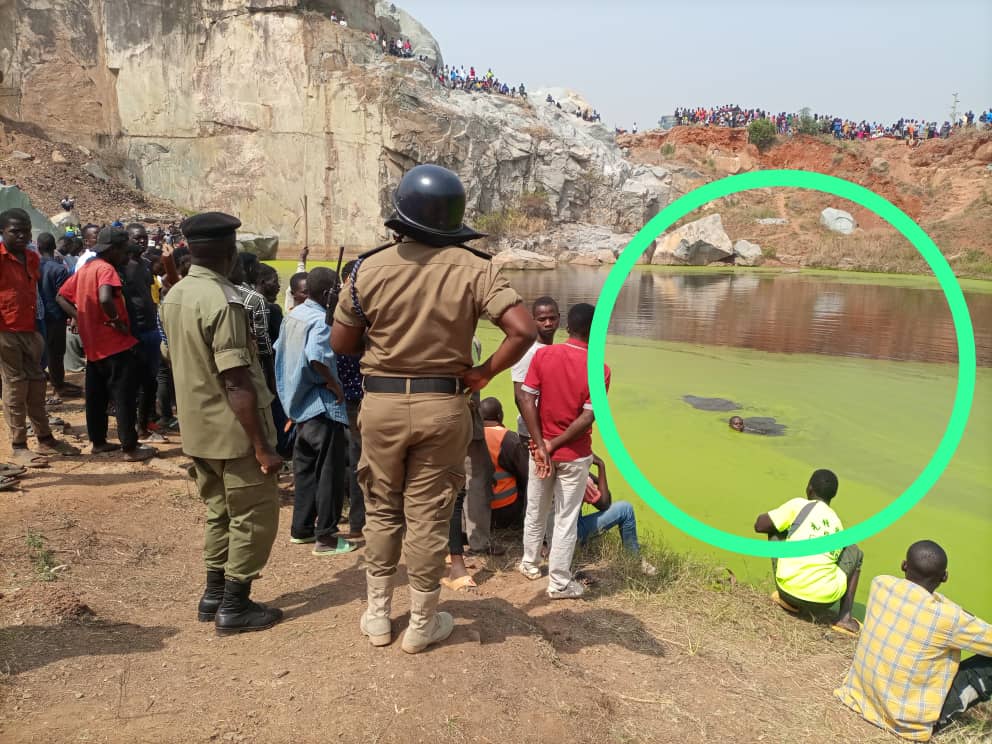
To read the Progress Report for the First Round, CLICK HERE. To read details about the Second Round, CLICK HERE.